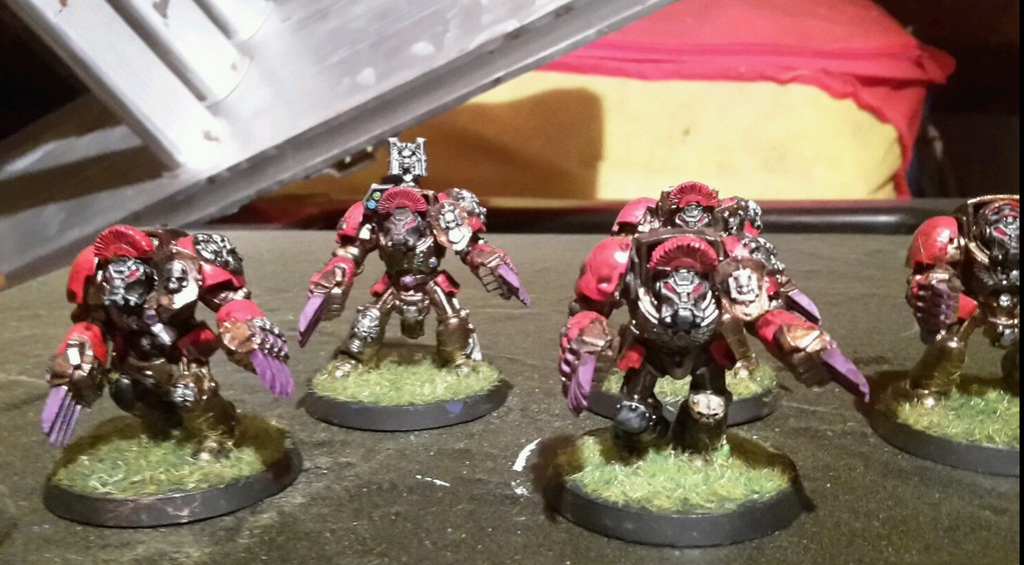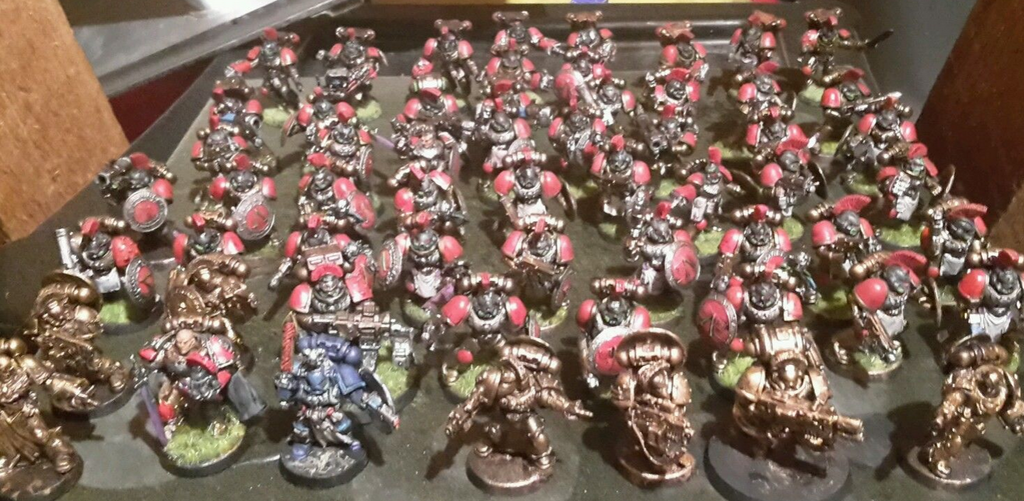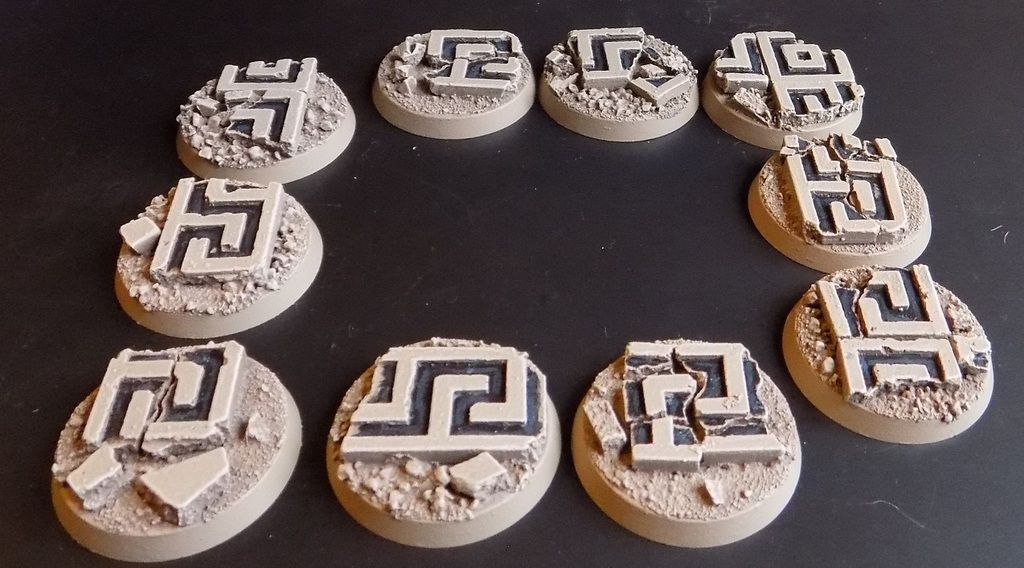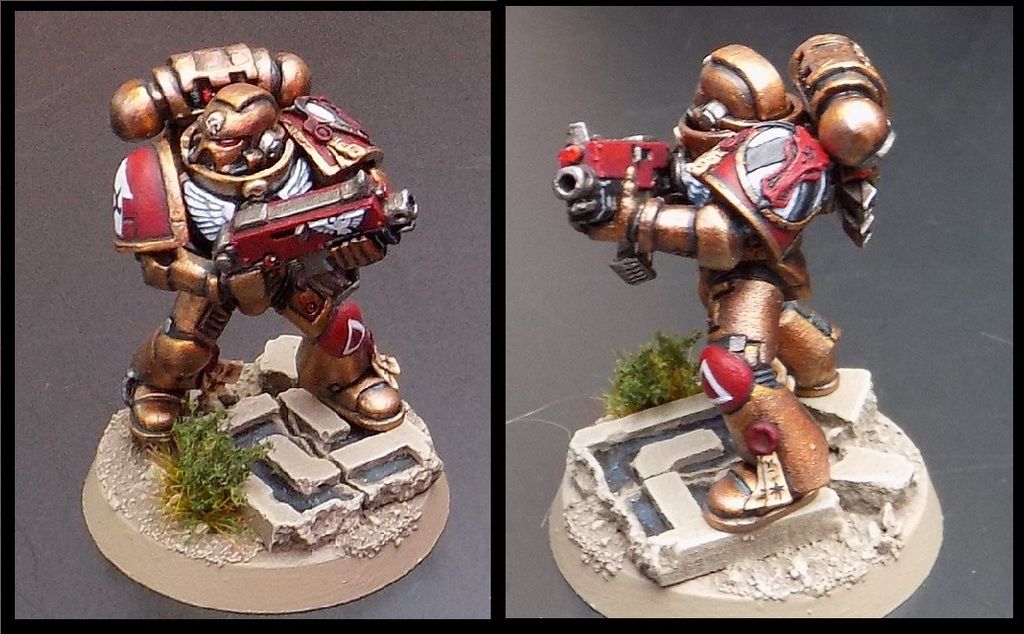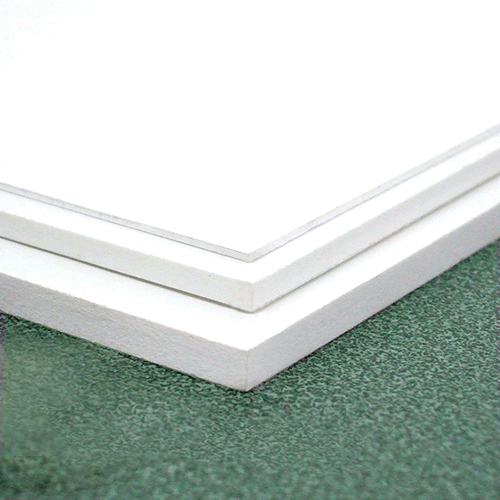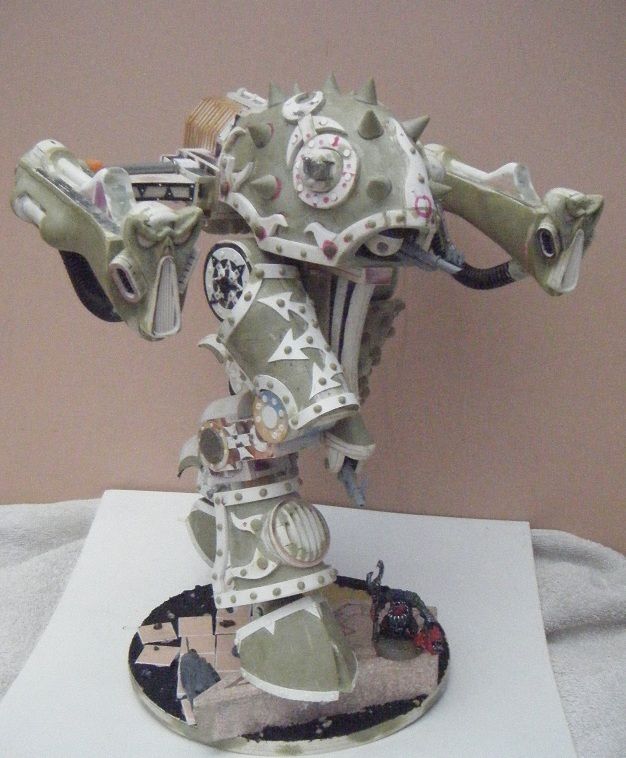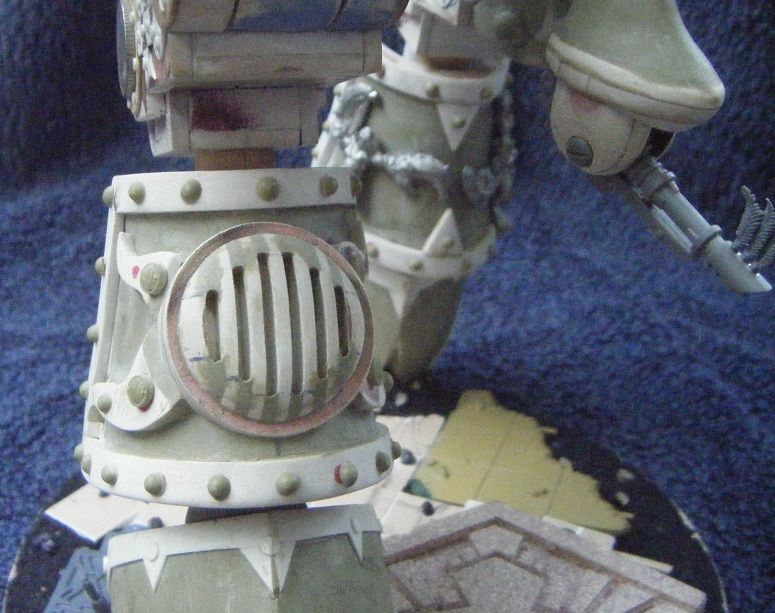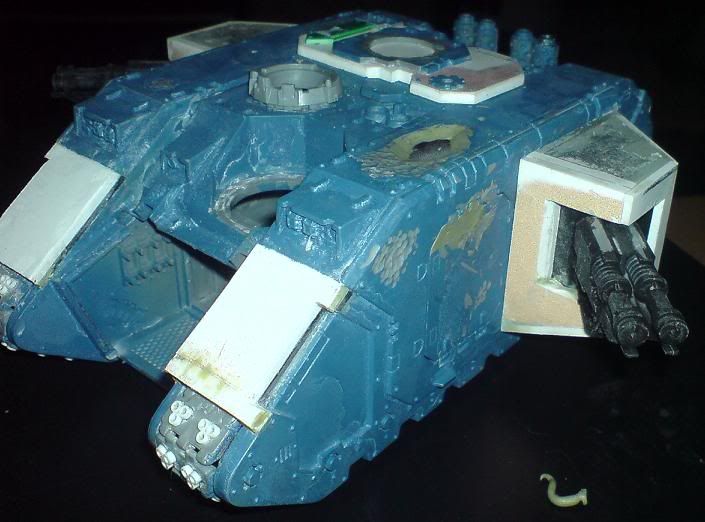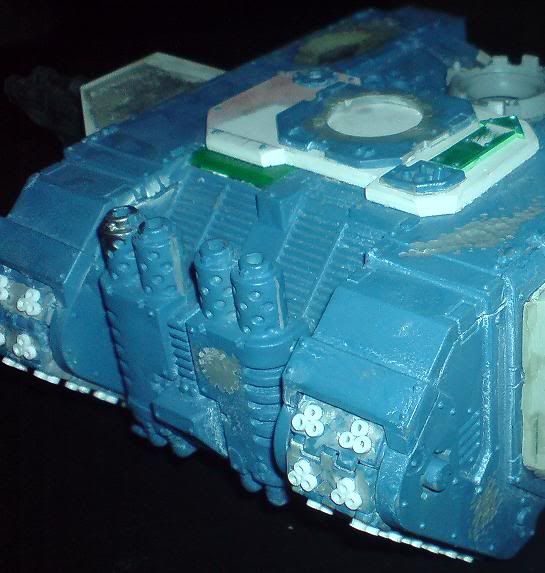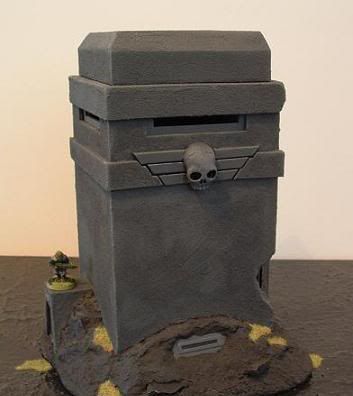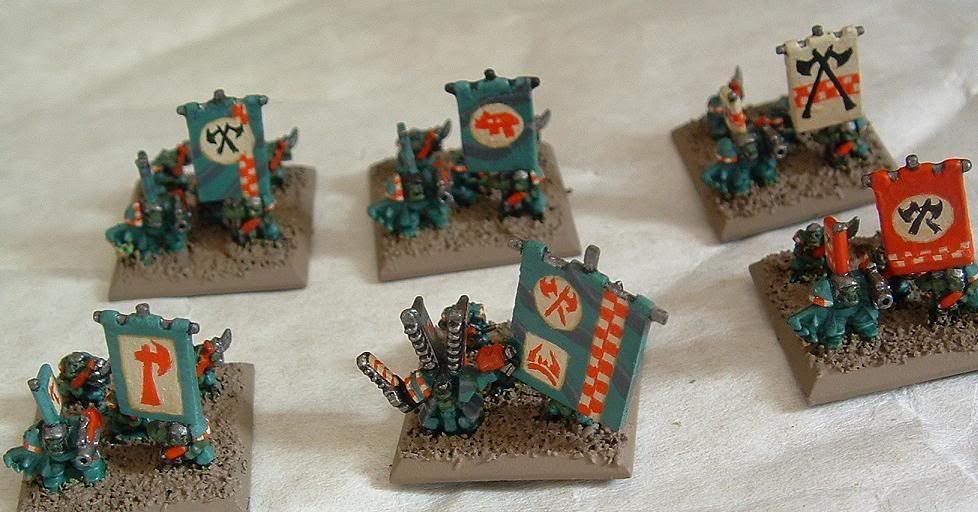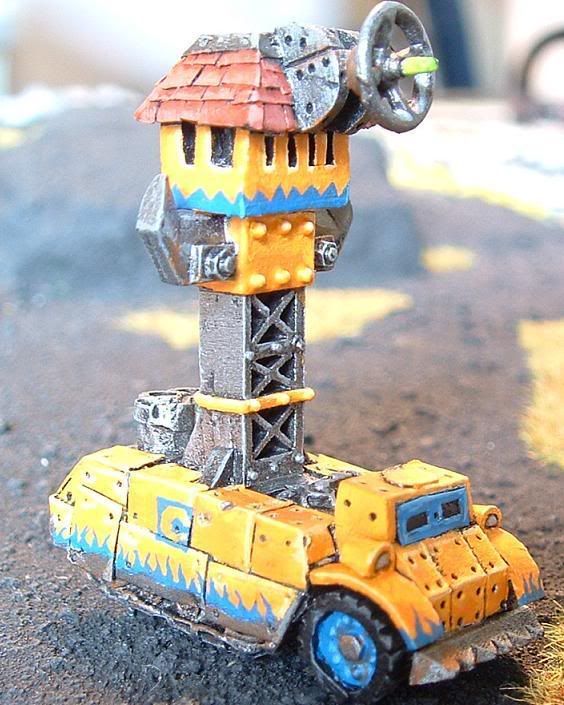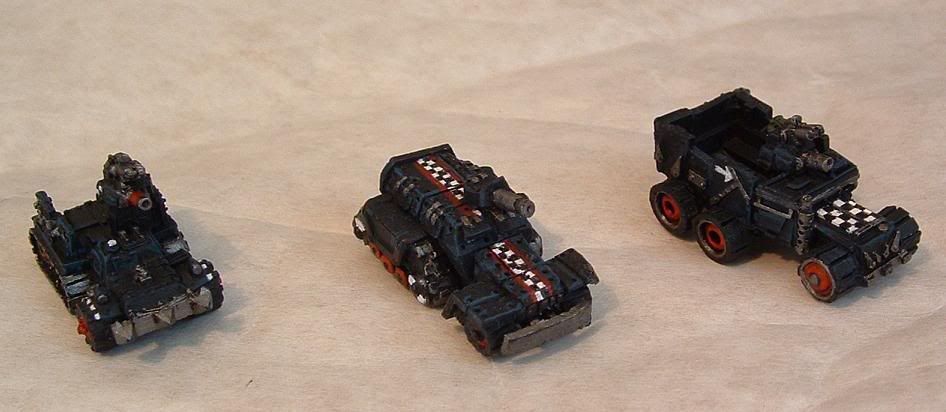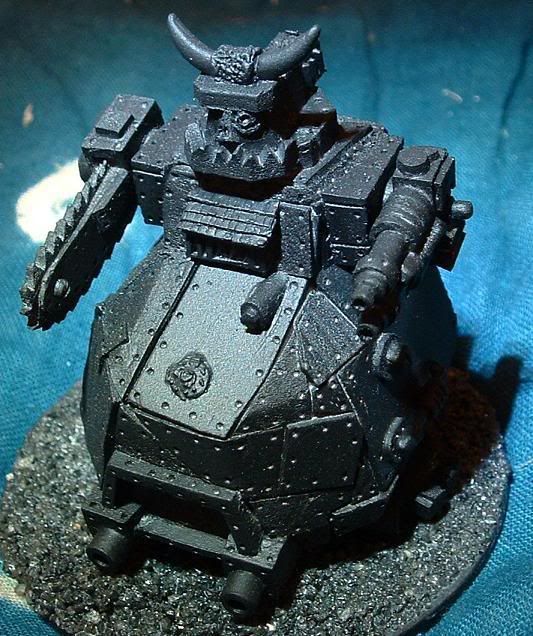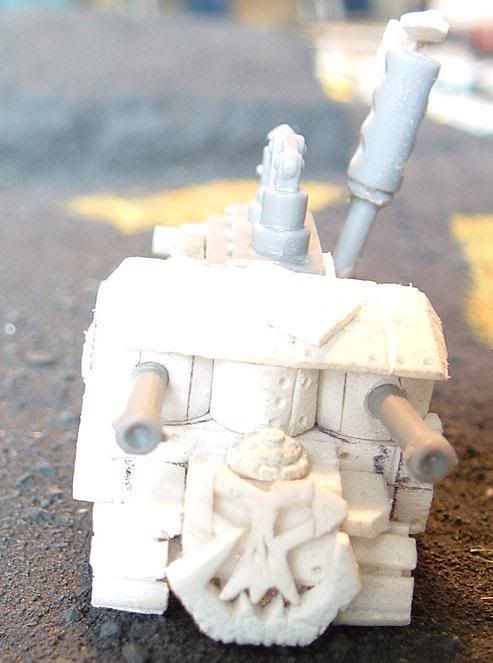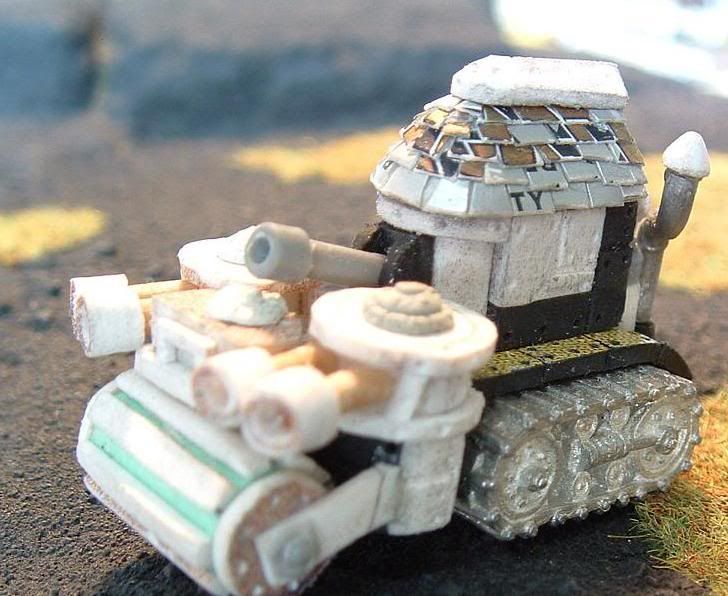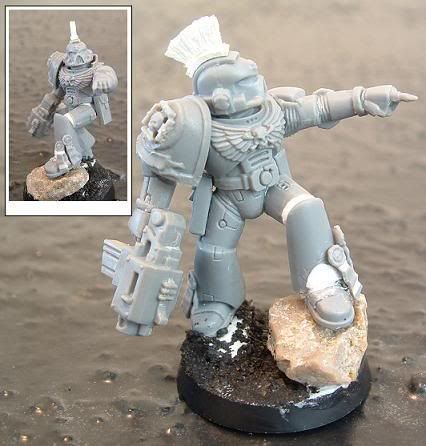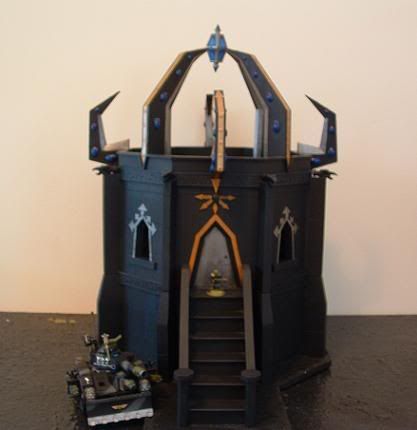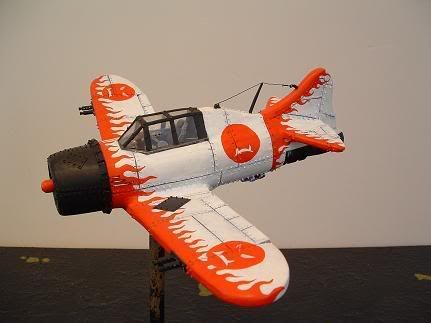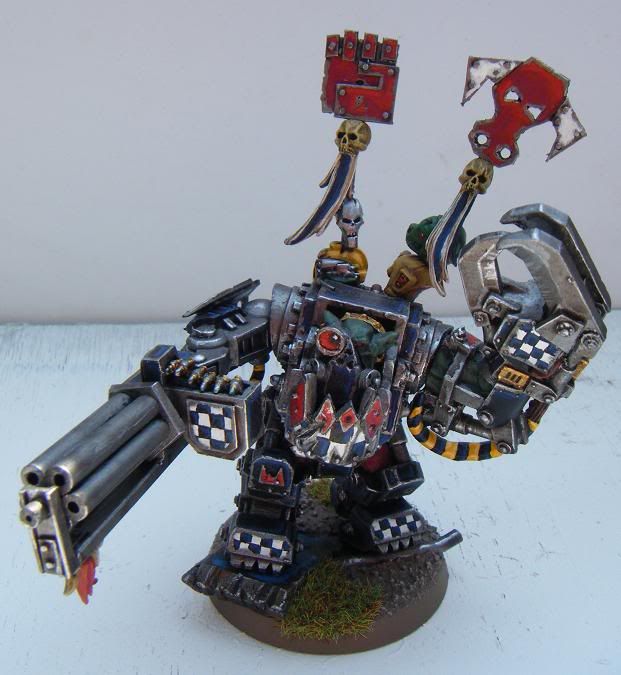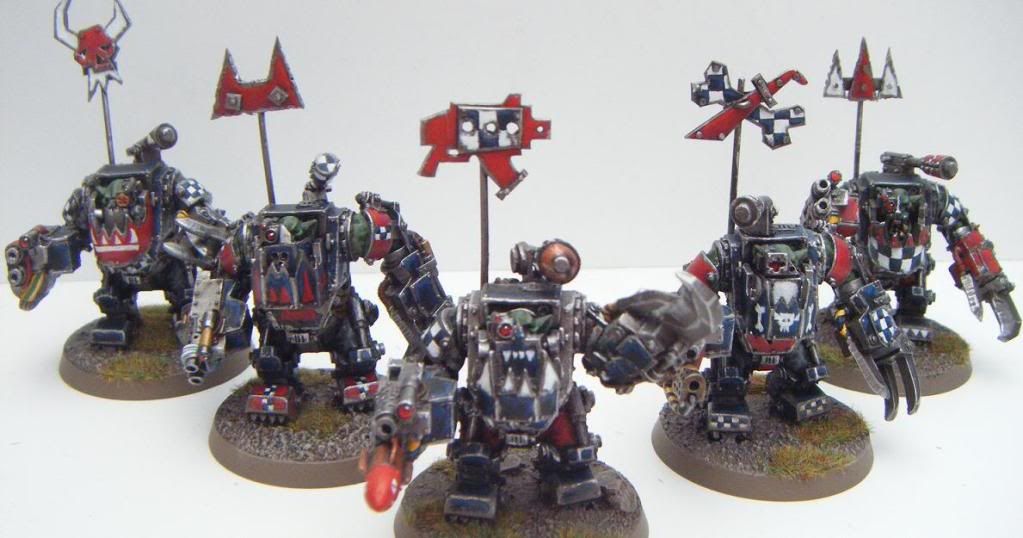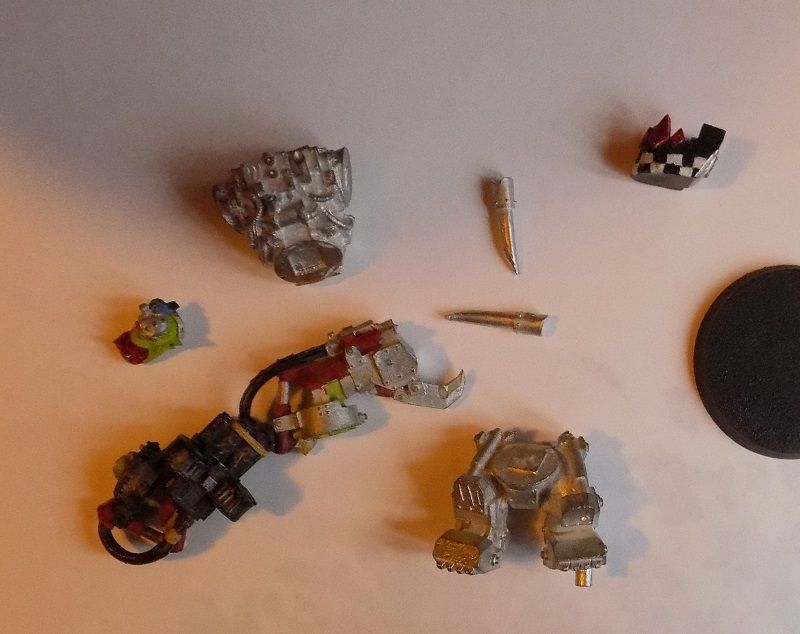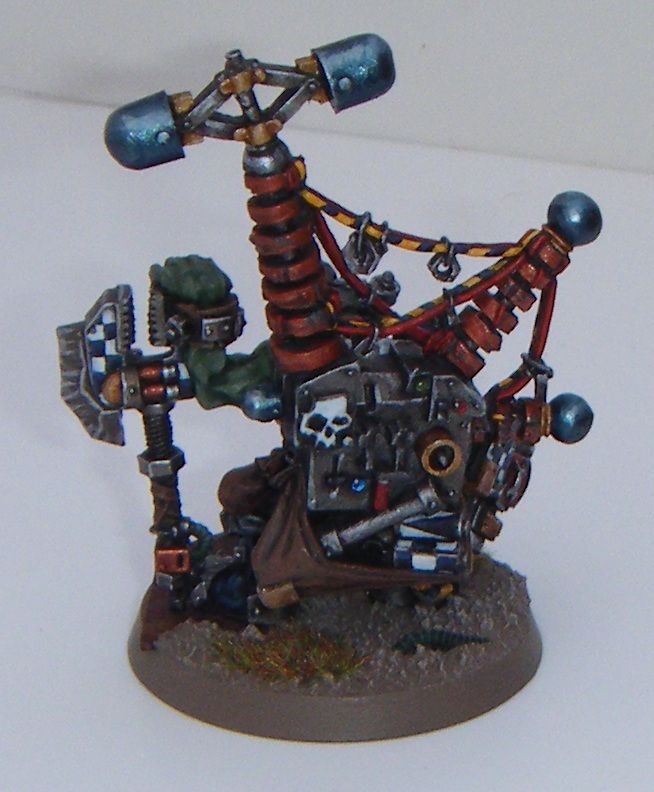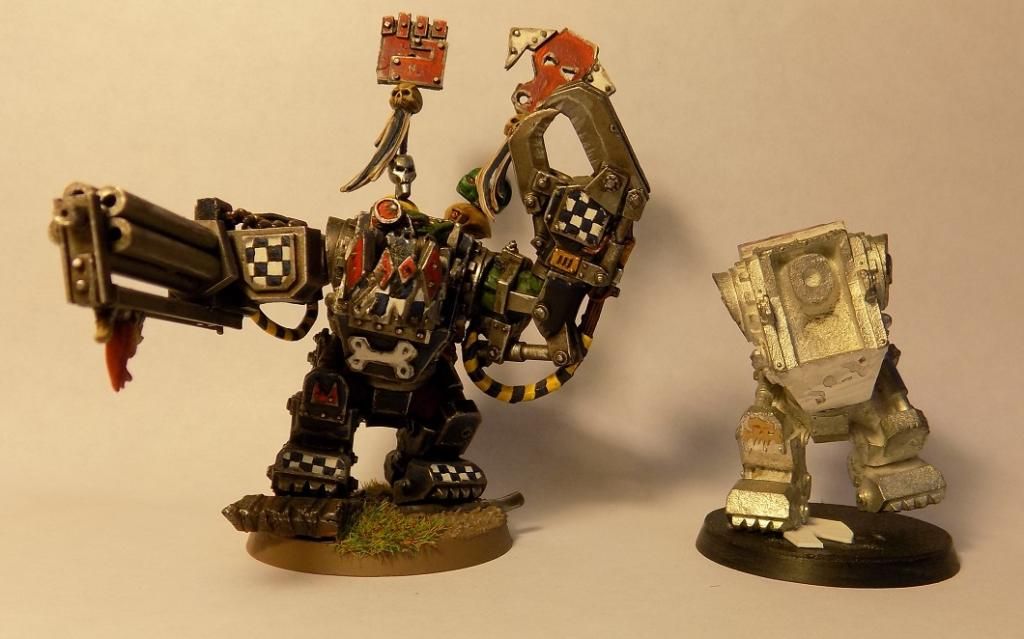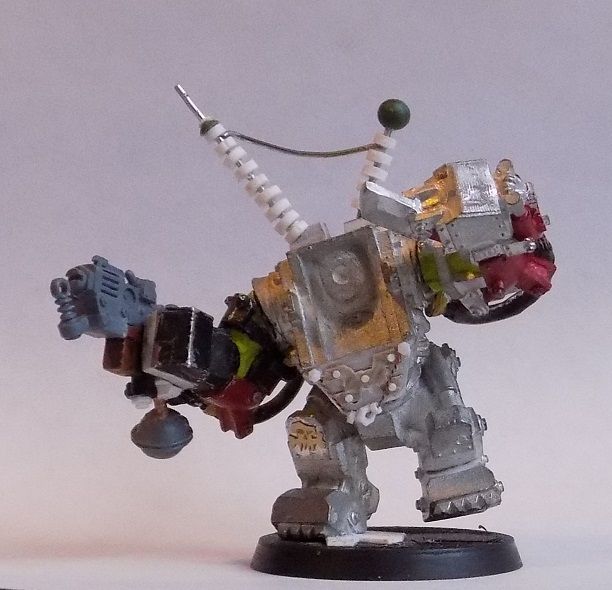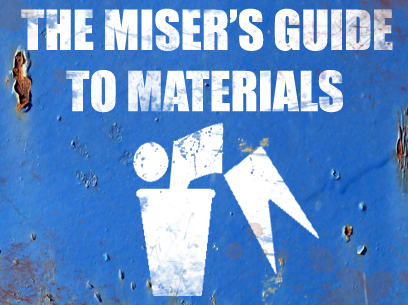 Basing Materials: Sand, Gravel and Rock
Basing Materials: Sand, Gravel and Rock
Once again I'm back with my penny pinching ways to offer you another way of saving vital cash for miniatures.
This one is all about simple yet effective basing substrate on the cheap.
A few companies have been flogging sand and grit to gamers at greatly
inflated prices for a while now so it is time to try and counter it.
One of the problems with buying such stuff on the cheap is that the
cheapest available tend to be for use with the building, gardening, or
landscaping trades. And this means
bulk. None of us are really going to need 25kg of sand so the first examples are nice small manageable quantities at low low prices.
Grit
Mavis is right, I swear by it too!
I use the Wilko brand from the Wilkinsons (UK) chain of stores but I'm
sure Pets at Home, Walmart or whatever your local cheap stuff or pet
supplies store will have something of similar ilk.
At the time of purchase (2nd Dec 2012) I picked up this 1kg bag up for
£1, whilst 1kg is still a bit much for basing it's easy enough to store
away in an old coffee jar and stick in a cupboard. It can be a bit rough
on it's own so I blend it with sand to get a mix of size granulation.(It's 2015 now and I still have plenty.)
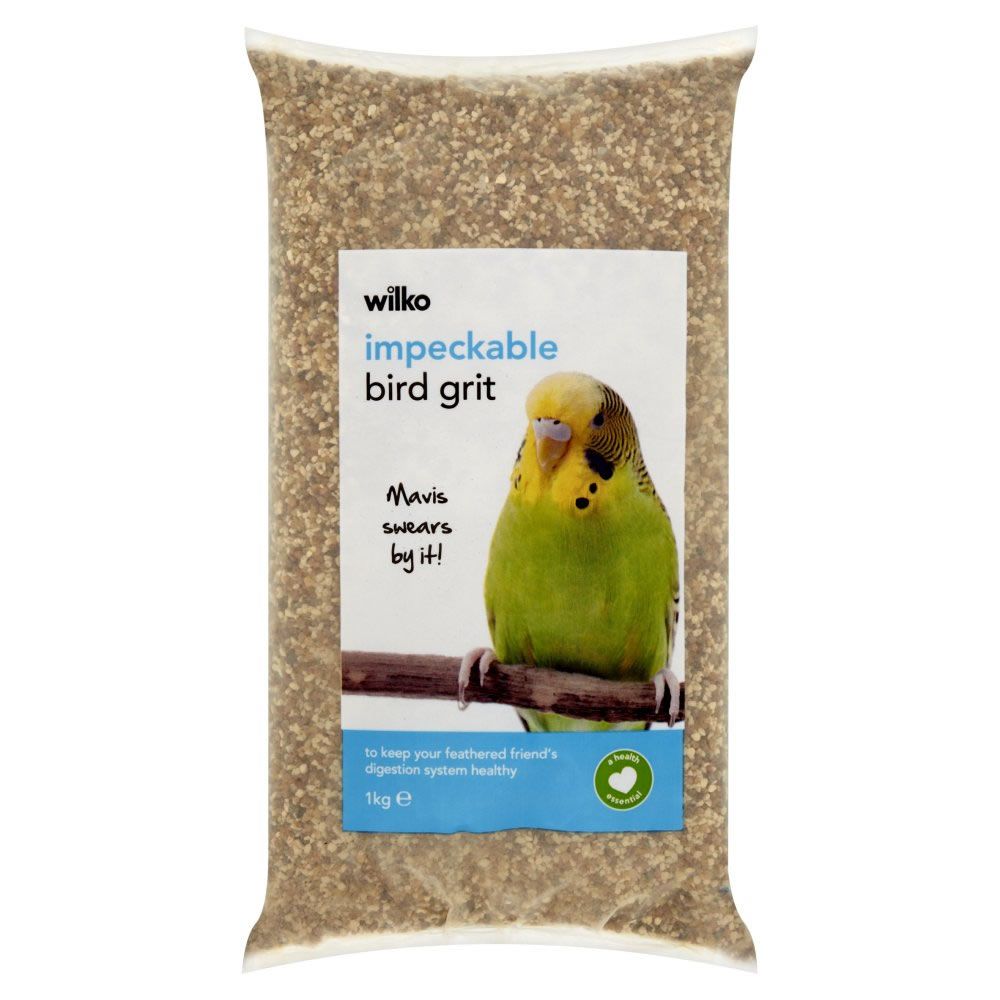
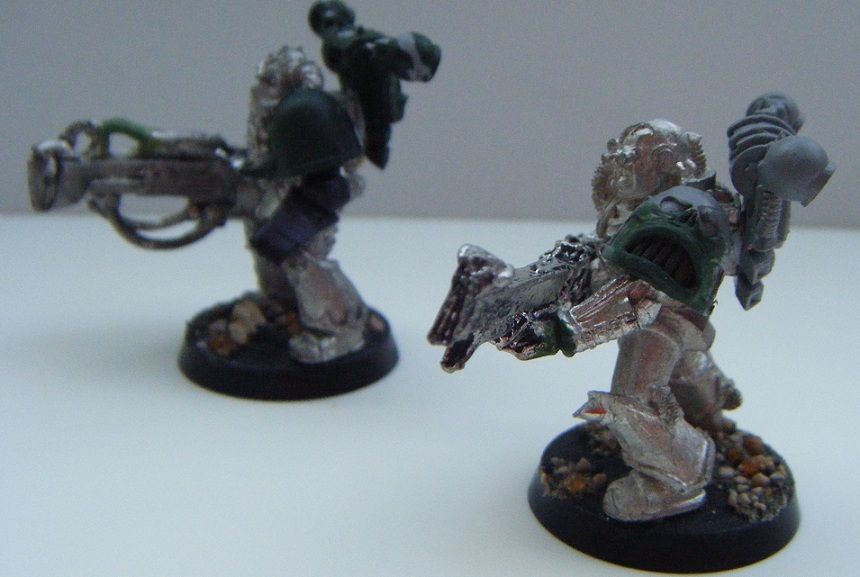 Sand
Sand
I don't really care about Mavis's digestive system but if you want fine
grade sand for your bases this is a good one.Once again this is the
Wilko brand and like the grit you should be able to find it in most
stores selling pet supplies.
Same price too, £1 for 1kg.
Personally I don't use sand on it's own as I find after spray
undercoating then painting it starts to lose some of the texture and can
become blobbish.
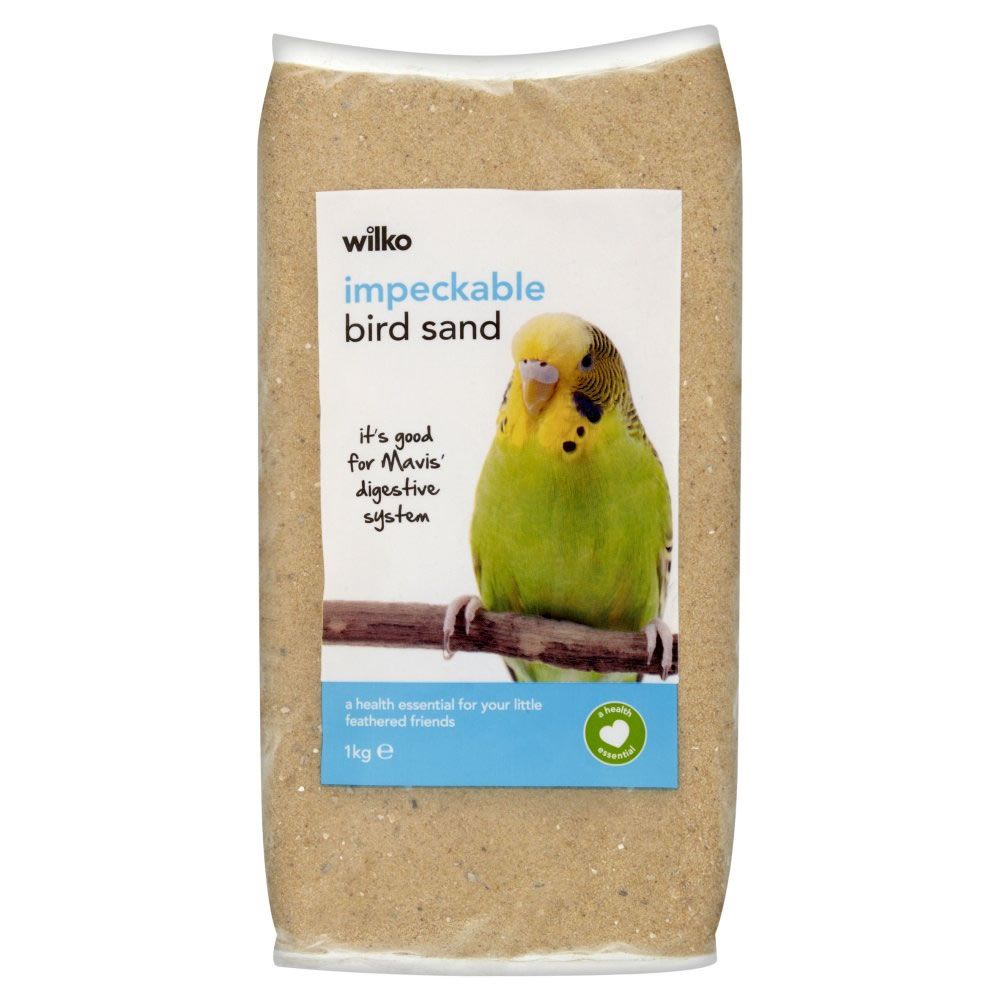
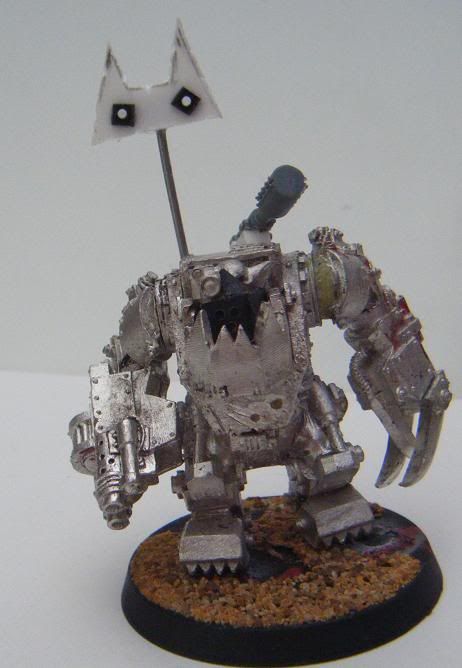 Blend of Sand and Grit
Blend of Sand and Grit
What I have done here is blend the sand and grit together in a small
wide necked jar (Crisp/Chip dip jars are ideal) so that I can dip in
model bases covered in PVA glue to coat them in the grit mix. A rough
guide is 1 part sand to 2 or 3 parts grit but it's something that you
should play about with til you're happy.
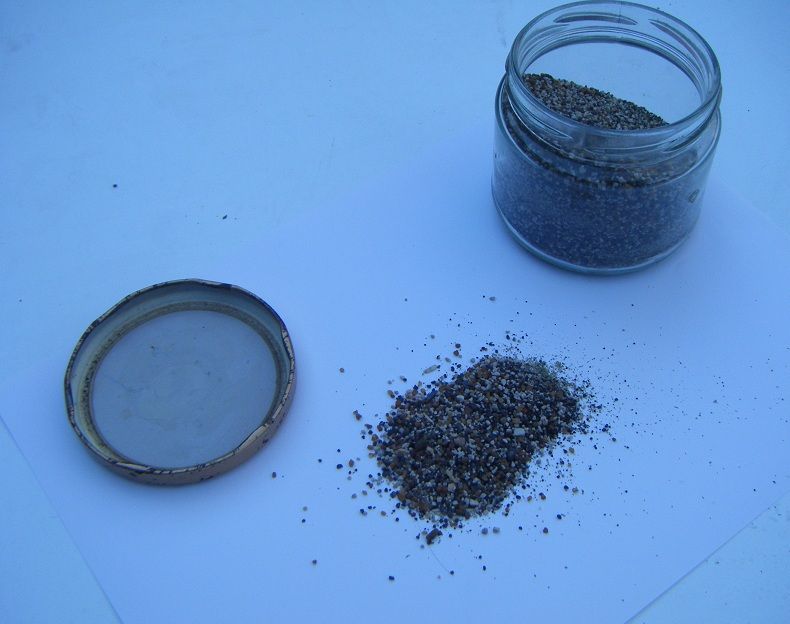
The left over sand and grit I have stashed away pure in coffee jars in
the loft as I don't use either in pure form and do not need them to
hand.
Slate
We have to get a little bit more inventive to get small amounts of slate
as it's normally sold in 25kg bags for gardens, driveways and paths or
as slates for house roofs.
Also a bit of work and some tools are required to get the most out of it.
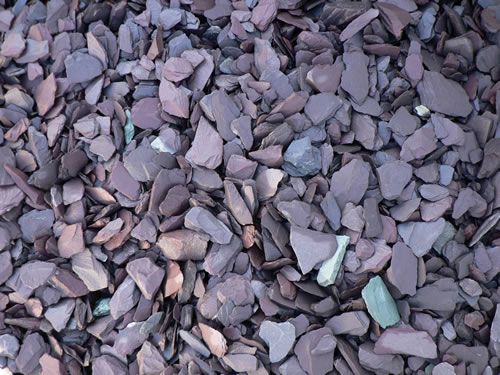 Slate Sources.
Slate Sources.
I'm going to dismiss roofing slates as a source as this is growing
scarce in these days of energy efficiency awareness and is also for
houses of a certain age which are not common in all parts of the world.
If you are lucky enough to live in a suburban setting you probably just
need to walk round the block and you will find a household that has
used the stuff in their front garden, some of it always seems to migrate out
onto the public pavement/sidewalk at which point it's fair game ( Do Not
be nipping over garden boundaries and helping yourself, no matter how
petty it's still theft). You may even have some in your own garden or be
able to visit a relative or friend who has.
If not you could visit a garden/building center, walk around the place
for a bit there is bound to be some just lying around on the floor, you
can probably pick up odd scraps here and there without any trouble.
Possibly honesty is the best policy with this route, you never know ask
politely and the store won't mind you walking out with a handful of
floor gatherings, this works best if you are making some form of
purchase already mind.
 Preparing and using Slate
Preparing and using Slate
Ok so you found some and got it home, so how do you use it?
I use Slate in 2 ways;
Large 'hero' rocks, you know the sort of thing the main
man/woman/monster of your army standing heroically poses upon a jutting
slab of rock (stupid really in a ballistics rich environment but hey it
looks cool).
This one is just a case of pawing through your stash of slate to find a suitably angled and sized chunk.
You can use a pair of pliers, wire cutters or Mole Grips to nibble away
at it to help it fit the base or re-size and shape you chosen bit of
slate.
Of course wear Protective glasses or goggles, bits may well ping off during this process.
Don't forget to save up the smaller off cuts they will also be useful.
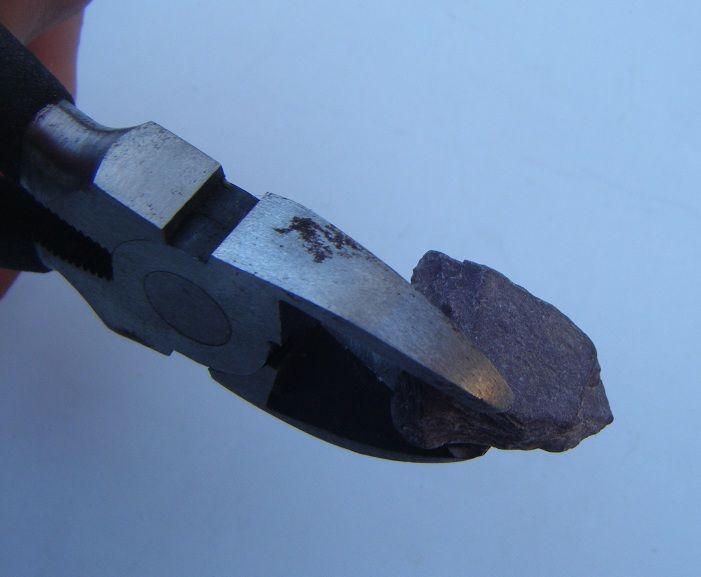
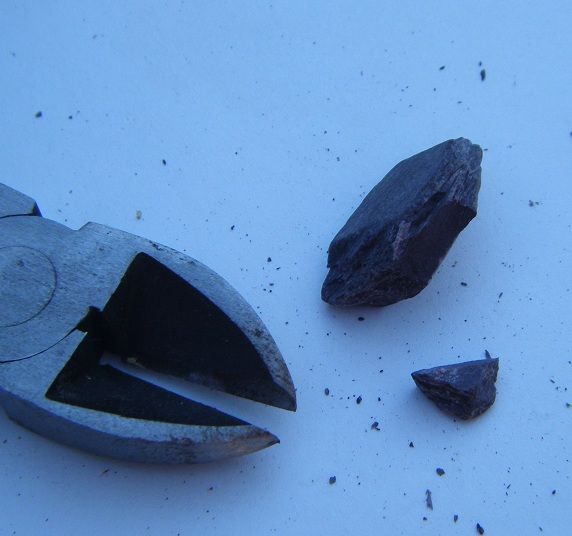
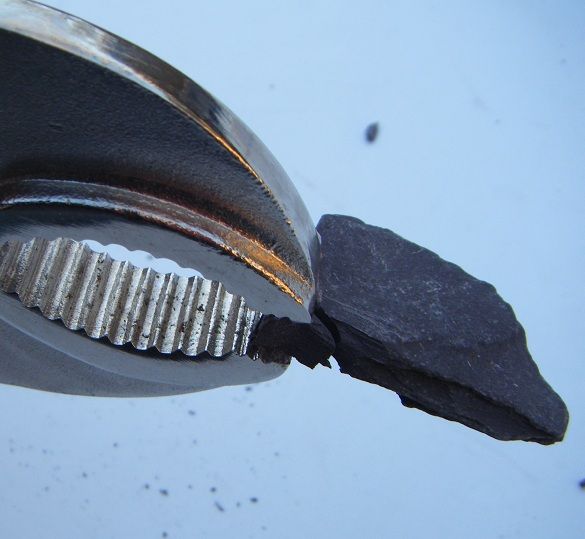
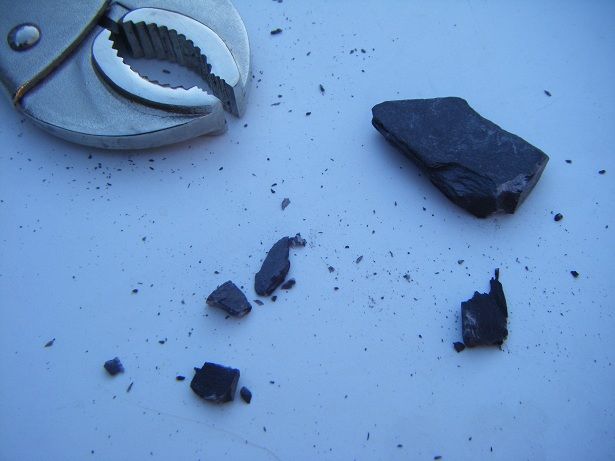
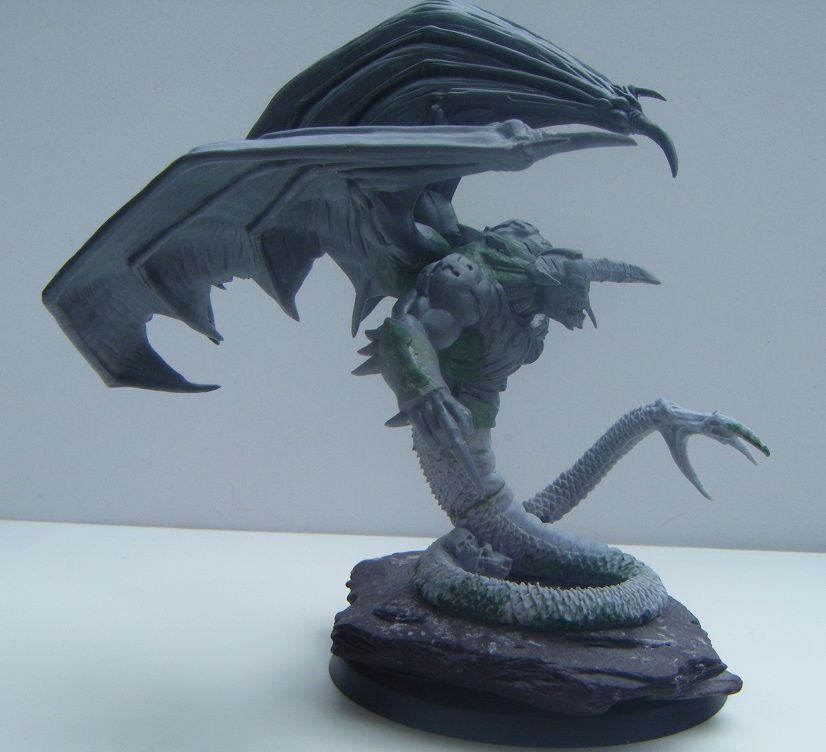
The second way is finer bits of slate used to coat bases in the same way as grit.
This requires a few simple tools and bits to prepare the slate.
Hammer, slate, old sock or work glove ( Work Gloves are better as they
can take the beating) protective goggles or glasses. Area of solid
concrete or some such is also a must (not many people have an anvil in the back garden).
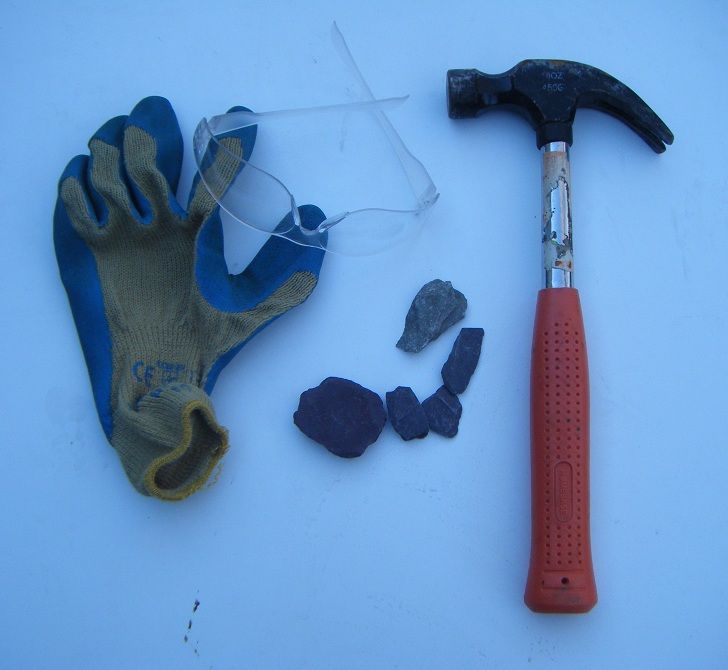
Place you're slate in the glove or sock, only a couple of bits at a time as too much actually makes the process slower.
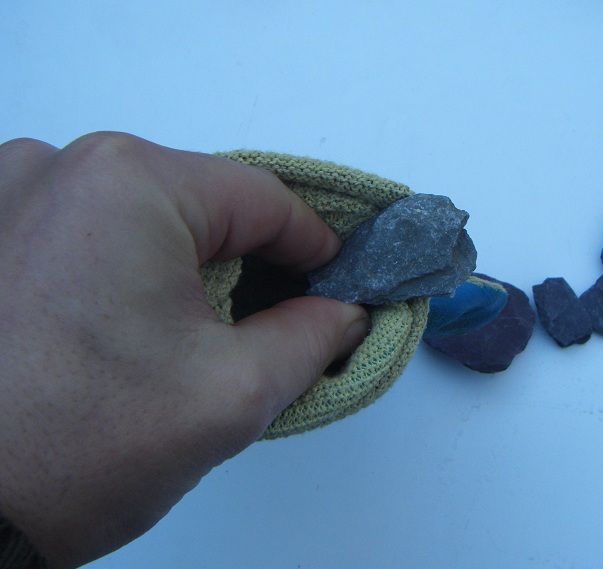
Select an area of good solid concrete (or your Anvil). The smoother the better - I found
slabs to be the best ( don't be smashing nice new paths about btw, it
causes arguments lol).
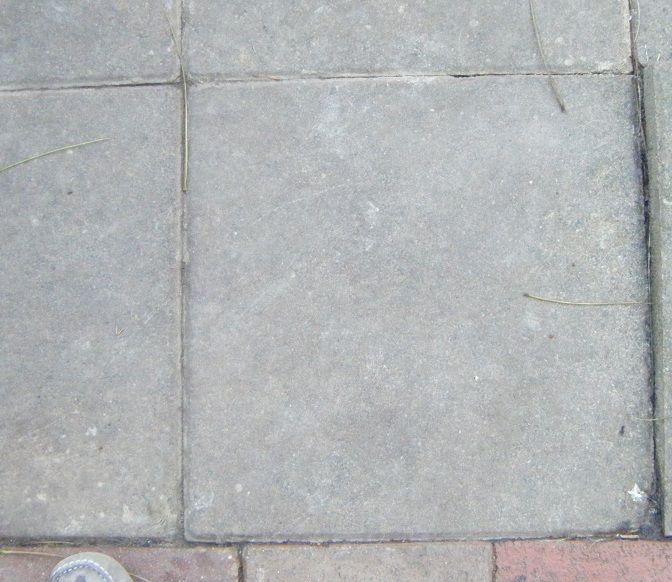 Hammertime ! First put on you're protective glasses.
Hammertime ! First put on you're protective glasses.
The glove is to capture the bits as you smash them up but is by no
means guaranteed to stop sharp bits of stone flying out! (Socks even
more so.)
Place the glove containing the slate on the concrete surface and have at it with the hammer
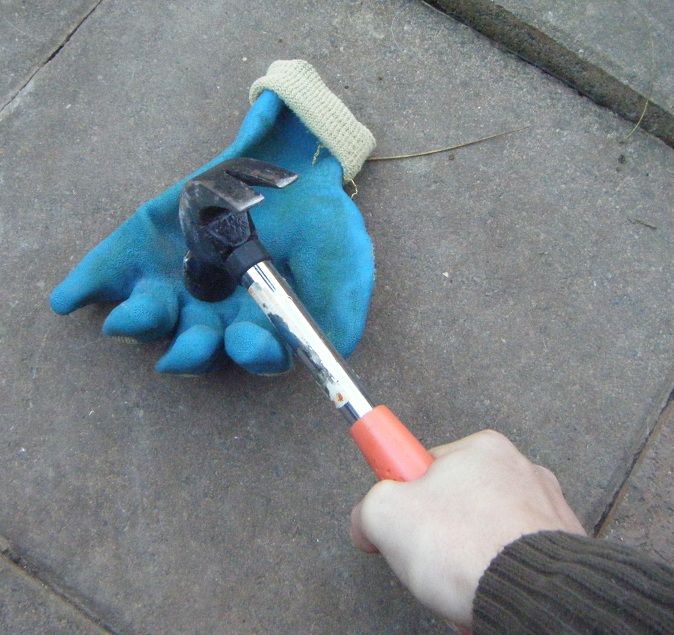
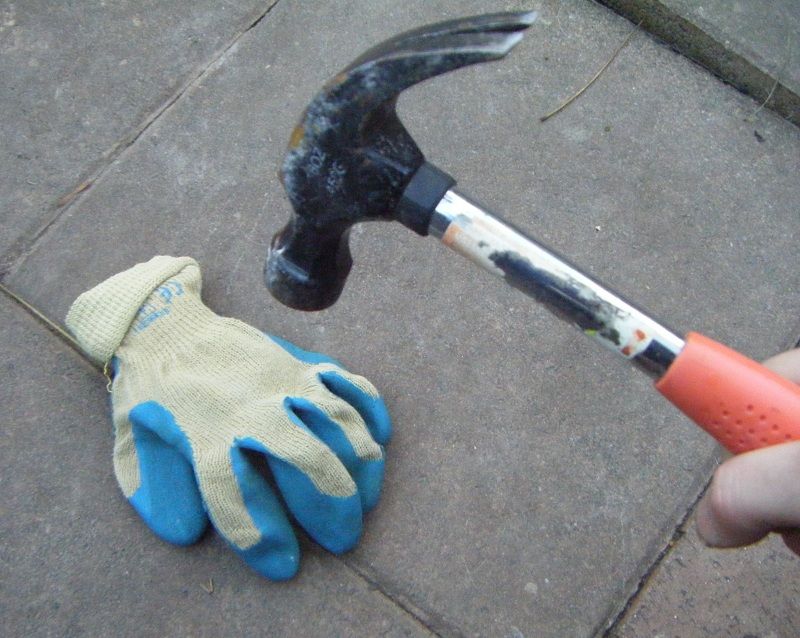
Note the damage, this is why old gloves are required, they will be no good for normal use after this.
Also this can be a bit loud, remember you neighbours might not appreciate the noise of some loon smacking a glove full of sedimentary rock with a hammer and try to choose sensible times of day accordingly.
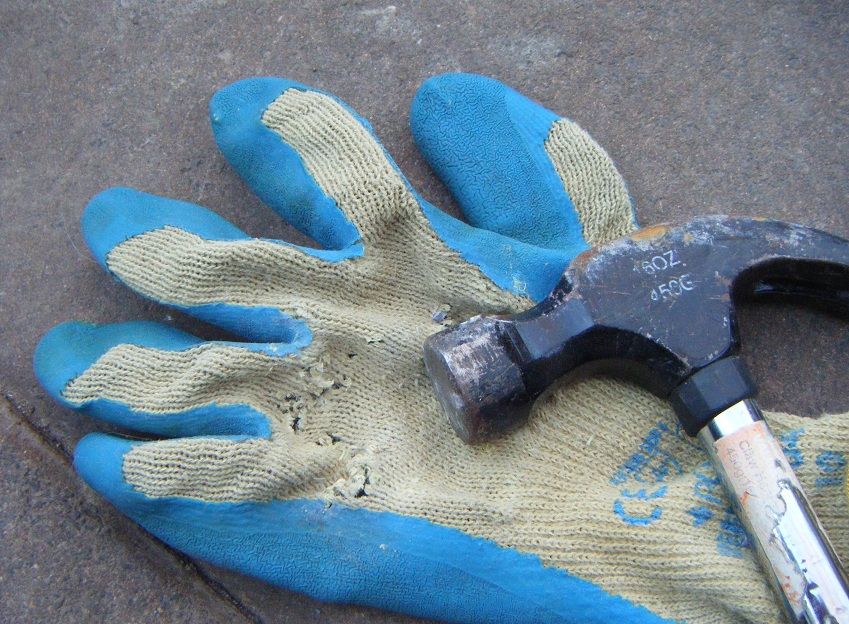
Over a bit of paper (so it is easier to collect up the small bits) tip out the glove.
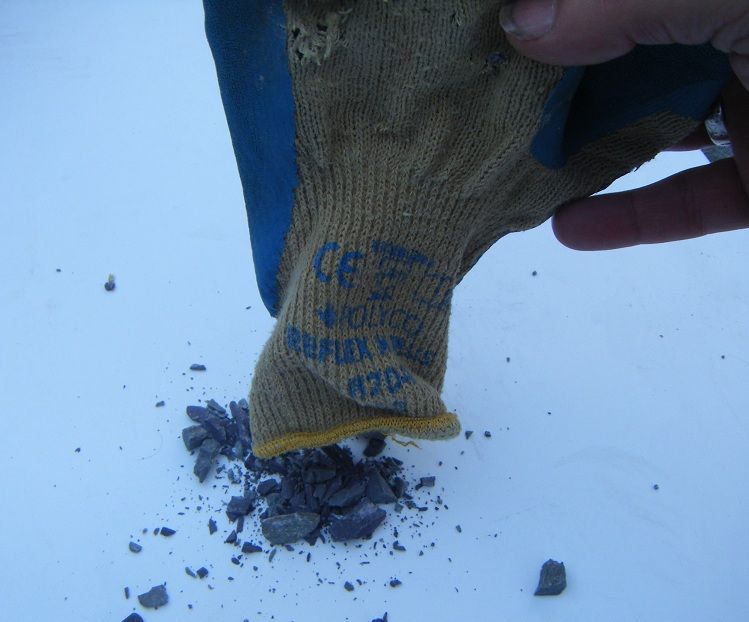
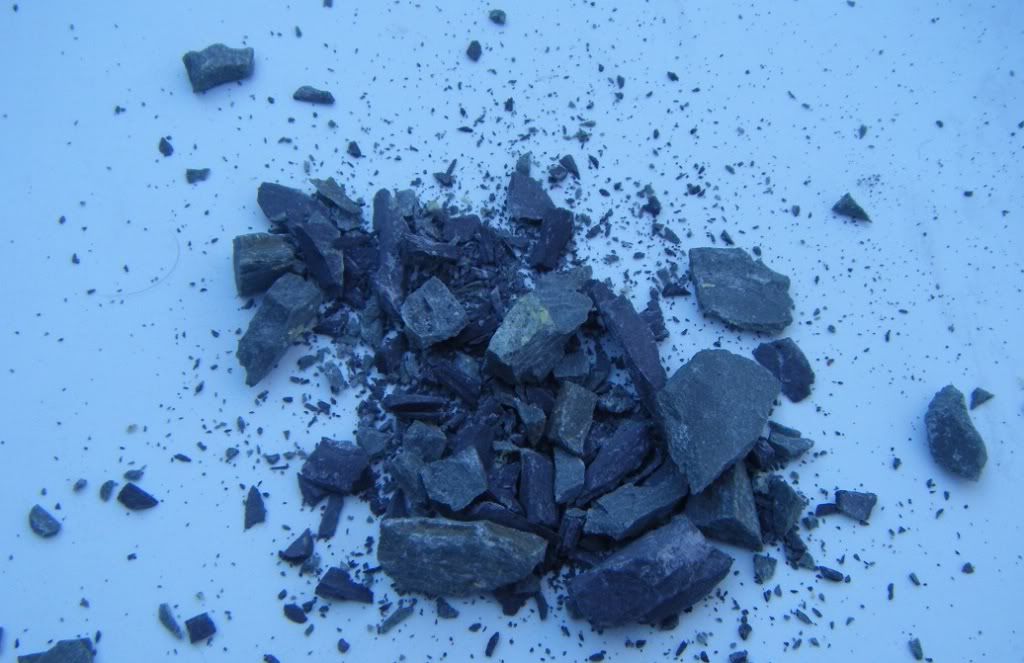
Roughly sort out the bigger bits and pop them into a pot, then tip the smallest parts into a different pot
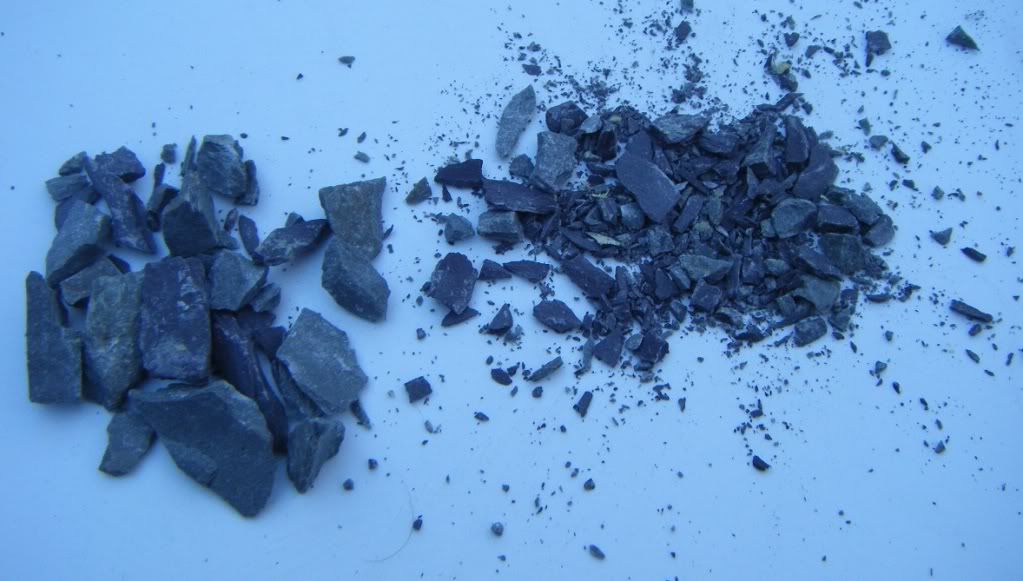
Then you are ready to use it on some bases.
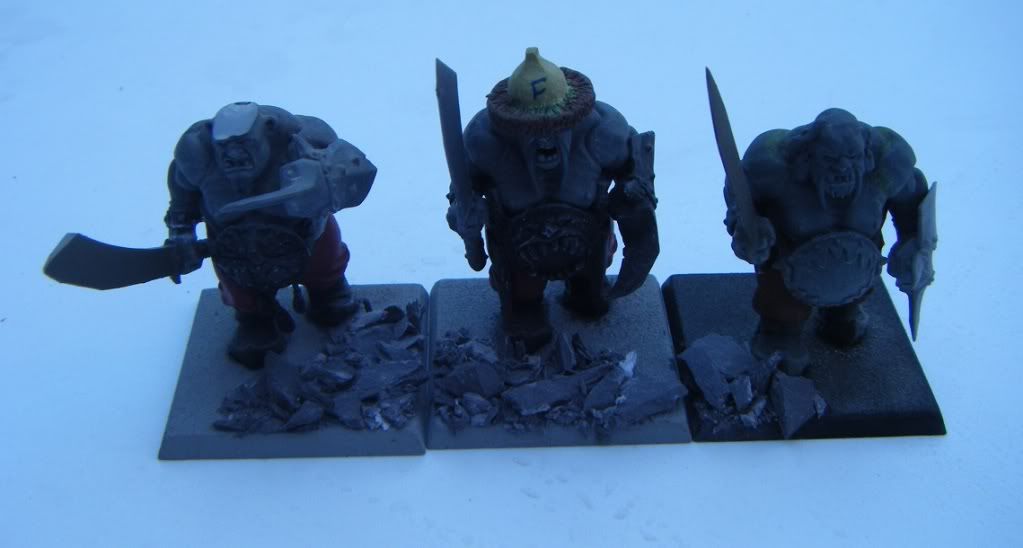
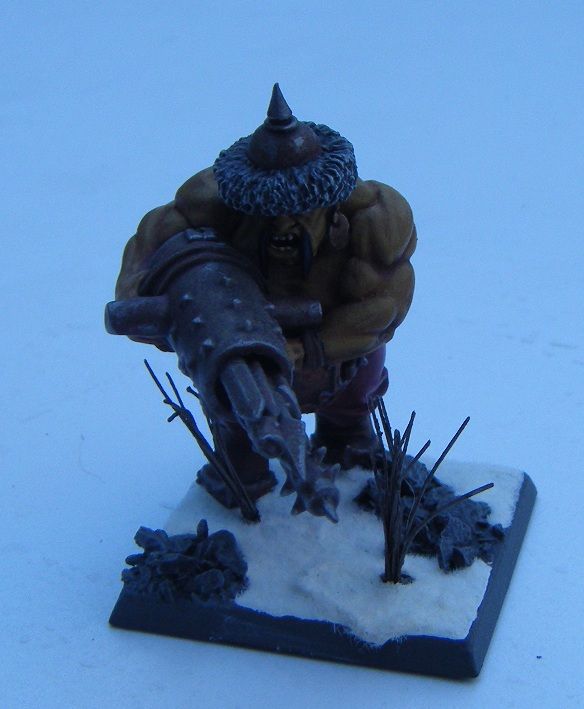 Terracotta.
Terracotta.
I won't go into much detail with terracotta as it will pretty much be a
complete repeat of the above entry for slate. In particular the smashing
up process is exactly the same.
Flower Pots Planters.
East to obtain, walk in to a garden center and buy away, when I wrote this you could get a 4 inch flower pot for about £0.55.
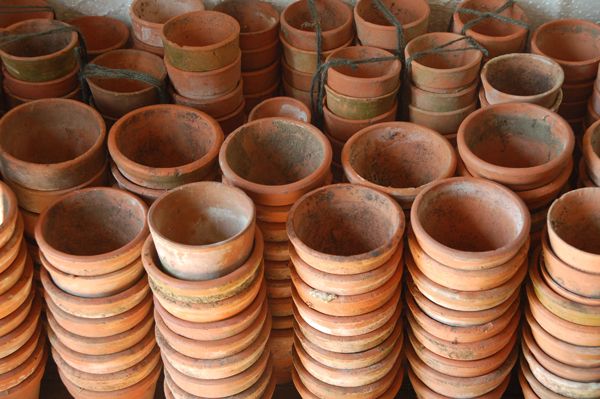
Tiles.
The preferred terracotta medium, once again single tiles can normally be
bought in DIY shops for about 50 pence, used cunningly they are great
for simulating broken slabs of concrete to denote fallen walls etc.
 Quick mention on fixing all this stuff to bases.
Quick mention on fixing all this stuff to bases.
Just a quick explanation I always use PVA glue to fix finer grade
grit/slate to bases, when that is all dry I then use a water thinned PVA
(about 60% water to 40% PVA) washed over it all to seal the substrate
and improve the adhesion to the base.
This stops the substrate absorbing too much undercoat and paint and
helps with the issue of little bits falling of and moving to places you
don't want it.
With large bits of slate/terracotta I use Super Glue to fix it to the
base and sometimes a bit of GS or Milliput squeezed in around the edges
for extra strength.
To add a mini to the top I normally Drill and Pin all the way through
the base, slate and into the model for strength, use an old drill bit as
it will blunt it and be patient as you go.

